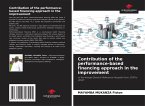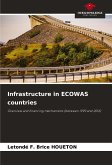This book seeks to discuss whether Public-Private Partnerships (PPPs) have become an effective alternative for financing infrastructure investments in Brazil. To this end, the methodology used was bibliographic and documentary research. On the one hand, infrastructure investments are of strategic importance for national development due to the positive effects they have on the economy as a whole, as well as on income inequality. On the other hand, the global context of financial crisis of the state since the late 1970s has hindered the expansion of sectoral investments in the country. Thus, the adoption of new instruments that favor the attraction of private resources to finance these investments is one of the possible alternatives, among which we seek to highlight the PPPs, strictly speaking, regulated by Federal Law No. 11,079/04.
Bitte wählen Sie Ihr Anliegen aus.
Rechnungen
Retourenschein anfordern
Bestellstatus
Storno








